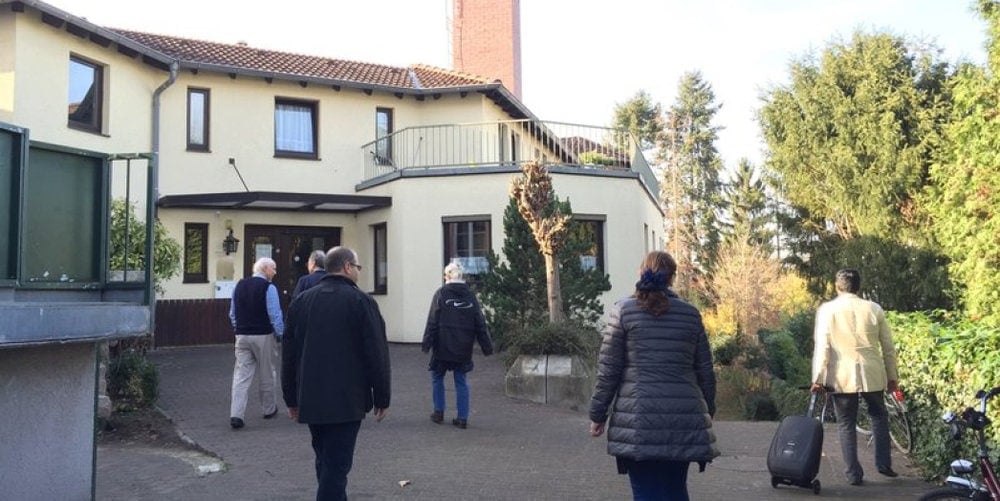
A small group of Seventh-day Adventist leaders has met with newly arrived migrants in Germany to gauge their needs and to determine what the church can do to assist them.
The Adventists traveled to a two-story former nursing home in Seeheim, a small town outside Frankfurt where the German government is housing about 100 migrants.
The outcome of the first visit was “very positive,” said Corrado Cozzi, communication director for the Adventist Church’s Inter-European Division, whose territory includes Germany.
“A family welcomed us with open arms and invited us to come in to just visit," Cozzi said.
The Syrian family included a father, mother and six children, the youngest of whom was born just as the family arrived in Germany. The parents are relatively young, and the father is a doctor who once had a profitable business in Syria.
The parents decided to flee the violence-torn country for the sake of their many small children.
“As they recounted their exodus and how they survived, it is understandable the joy they feel to have arrived in Germany,” Cozzi said in a statement.
The family and many other migrants in the German facility are waiting for residence permits, a document that will allow them to stay in Germany and seek jobs. But first they will undergo a series of interviews to verify the validity of their documents and their desired refugee status.
Speaking with the migrants, the Adventist visitors confirmed that they were following various routes to reach mainland Europe.
“Of course by paying extra, you arrive faster,” Cozzi said. “But most do not have sufficient, available financial resources.”
He said the adults expressed a willingness to return to Syria if peace could be restored and Muslims, Christians, and various other faith groups could live together.
“If the country were to return the way it was, they would be willing to go back,” he said.
But smiles on the faces of migrant children indicated that they would not mind staying in Europe, said Elsa Cozzi, children’s ministry director for the Inter-European Division.
“It was a bit difficult to communicate because we didn’t speak the same language,” she said. “We communicated with a bit of German translated into English and sometimes in French, but the language was not a barrier. We connected with smiles and hugs. We showed and shared much affection."
Three employees of Adventist World Radio interviewed the migrants about their passage to Germany via Turkey and Greece.
“These stories are not to be made public for reason of prudence and protection,” said Daryl Gungadoo, global distribution manager at Adventist World Radio. “These are things that we all see on television, but to hear them told by someone who experienced them firsthand certainly has a completely different effect.”
The migrants spoke of the challenges of food, rest, rain, mud, discomfort, and the overriding fear of not making it to their destination. But they also had a certain peace about them, calmness that they had achieved their goal by arriving in Germany.
The Adventist Church in Germany is looking to meet regularly with migrants and offer assistance. Local Pathfinders are preparing programs for refugee children. Church leaders are seeking to collect winter clothing, an imminent need of the newly arrivals.
But “more than material needs, people need to talk, to communicate their feelings and emotions, to vent, to share their stories,” Cozzi said. “You do not come here just once to offer your time listening to these people. What is important is a constant intervention that allows these people not to feel [that they are] the object of pity but of respect.”